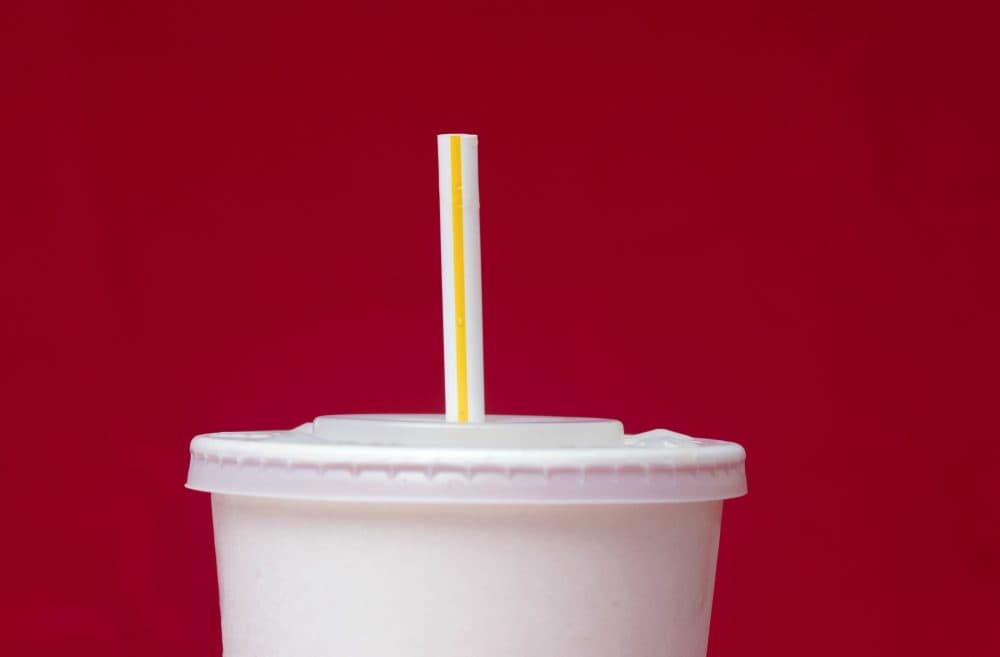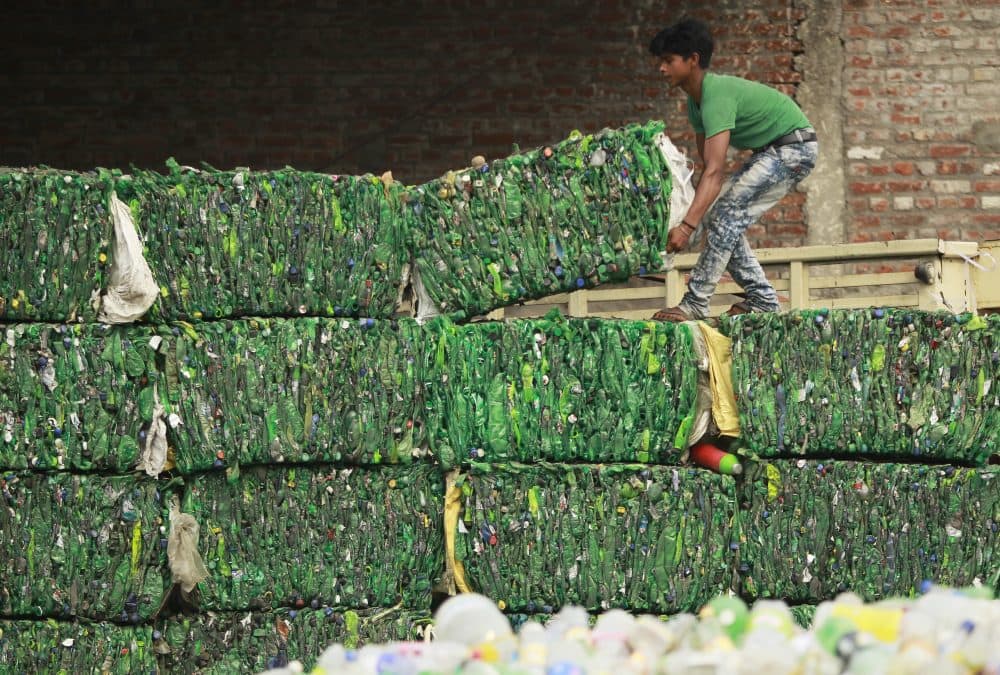Advertisement
Commentary
Only Phasing Out Unnecessary Plastic Will Fix Our Recycling Crisis

What happens in your town stays in your town. That maxim has taken on added punch of late when it comes to recycling. What you put on your curb increasingly has been staying nearby, thanks to developments on the other side of the world.
I confess I was unaware that China had been buying half of the plastics and paper recycled worldwide. That ended on New Year’s Day, when the People’s Republic began rejecting “foreign garbage” as part of a campaign to cut pollution. The result, though it may have escaped some people’s notice, has been what one expert calls a full-blown “recycling crisis.”
Dozens of U.S. municipalities have had to reroute piling-up recyclables to landfills — the exhaustion of (and pollution from) which led to recycling in the first place. Other countries also are drowning in their own refuse. Mountains of garbage arose on Hong Kong docks as if by tectonic shifts.
As the saying goes, every crisis is an opportunity, and the solution to this crisis is to change our wasteful ways. Ultimately, that boils down to one word cinephiles will know: plastics.

I’ll explain in a moment, after some background. Getting Americans in the recycling habit has been an environmental success story, with tonnage steadily increasing over the last three decades, reaching 89 million (including composted matter) in recent years. Then China not only banned certain items altogether but stiffened restrictions on acceptable items that are contaminated with non-recyclable matter.
Turns out that’s a big problem: Many people (including me), thinking we’re doing the environmentally responsible thing, recycle stuff that is contaminated or otherwise unrecyclable, including greasy pizza boxes, polyethylene-lined coffee cups, yogurt cups, plastic take-out boxes stained with oil and plastic bags.
It’s not always easy to tell what is and isn’t fit for the hauler; evidently, a few pizza crumbs or a tiny bit of grease that hasn’t seeped through the box can be OK. Even so, plastics pose particularly vexing problems.
Other countries that have been dumping grounds for our plastic are considering following China’s lead, and anyway, much plastic can’t be recycled, unlike alternatives such as glass and aluminum, making it the proverbial ants-at-a-picnic among garbage; you can’t avoid it. Eighty percent of the trash on New Jersey’s long-suffering beaches is plastics.
A hockey coach once told me that the best way to kill a penalty is not to commit it in the first place. One way to dispose of garbage is to not produce it. Phasing out all plastic products that are used once, from straws to bottled water for the Evian set, sounds utopian. But Britain plans to eliminate avoidable plastic waste by 2042, possibly by taxing single-use plastic.
The crank corner will scream, socialism! Right. The generals leading the anti-plastic campaign are such noted bomb-throwers as Britain’s prime minister (a Conservative) and Queen Elizabeth, who banned bottled water and straws from royal estates. Rule, Britannia!
Australia meanwhile is working with its industries to make all packaging recyclable, or at least reusable, by 2025, cutting what must go to landfills. That nation also hopes to increase the number of facilities that gobble garbage, including recycling, and make energy from it.
One way to dispose of garbage is to not produce it.
Experience having confirmed that environmentalism and a healthy economy are compatible, the cranks can be tuned out. Less easily ignored are special interests that oppose sensible things like plastic grocery bag fees and bear creative names. (The American Progressive Bag Alliance?)
Deep pockets in the plastic industry needn’t stop consumers from doing their short-term part. For example, they can cart groceries home in reusable bags. (Some states and communities are banning, or requiring fees for, plastic grocery bags.) And better education about keeping those contaminated items out of the recycling stream also helps.
But let’s not kid ourselves that individual initiatives, however worthy, can be more than Band-Aids. The “progressive” plastics sector can count on support from the anti-environment regime occupying the U.S. government.
Yet another reason to vote for enlightened lawmakers in November’s mid-terms. Otherwise, we may be up to our necks in papers and plastics.
